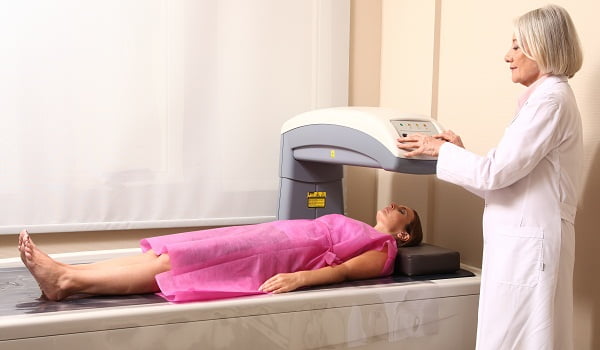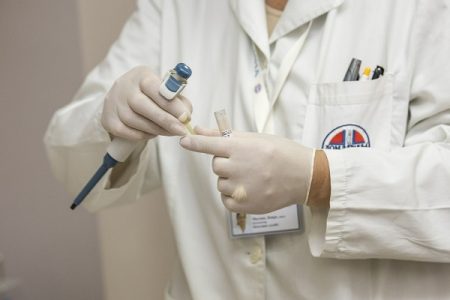All About Hypocalcemia (Calcium Deficiency Disease)
- Updated on: Jul 10, 2024
- 4 min Read
- Published on Feb 28, 2020

What is hypocalcemia?
Hypocalcemia is a commonly encountered biochemical condition in which there are lower than average level of calcium in plasma. Calcium has many important functions in your body.
Functions of calcium in the body
- Calcium is key to the conduction of electrical impulses in your body
- Your nervous system depends on calcium for its functioning. Nervous system uses calcium to communicate with your body
- Calcium has pivotal role in muscle movement
- Bones need calcium to stay strong , grow and heal
- Calcium plays essential role in blood clotting
When does hypocalcemia occur?
Hypocalcaemia occurs when the total serum calcium concentration is less than 7.0 mg/dL and the ionized calcium is less than 3.5 mg/dL in your body.
Hypocalcemia may be the result of low calcium production or insufficient calcium circulation in your body. A deficiency of magnesium or vitamin D is linked to most cases of hypocalcemia. Long term deficiency can affect major organ systems of your body.
What are the symptoms of hypocalcemia?
Early stage hypocalcemia may not have any signs and symptoms; however symptoms start manifesting as the condition progresses. This condition in babies is knows as neonatal hypocalcemia. It shows symptoms of twitch and tremor.
Symptoms experienced by adults may include:
- Muscle stiffness and spasm
- Paresthesias, or felling of pins and needles , in the extremities
- Mood change such as anxiety, depression, or irritability
- Memory issue
- Hypotension
- Difficulty with speaking and swallowing and fatigue
- Parkinsonism
- Papilledema, or swelling of the optic disc
Severe form of hypocalcemia may manifest symptoms such as seizures, arrhythmias, congestive heart failure and seizures of the voice box.
The long-term symptoms of hapocalcemia include:
- Dry skin
- Brittle nails
- Kidney stones or other calcium deposits in the body
- Dementia
- Cataracts
- Eczema
Tetany is a result of severe hypocalcemia. It is characterized by the following:
- Sensory symptoms consisting of paresthesias of the lips, tongue, fingers, and feet
- Carpopedal spasm, which may be prolonged and painful
- Generalized muscle aching
- Spasm of facial musculature
What are the causes of hypocalcemia?
Hypocalcemia can occur due to disorders of vitamin D metabolism and action, hypoparathyroidism, resistance to parathyroid hormone, or a number of other conditions such as kidney failure, hyperphosphatemia (elevated phosphate levels), hypoalbuminemia (low albumin), magnesium deficiency and pancreatitis.
Calcium homeostasis is maintained by vitamin D and parathyroid hormone (PTH), and the major causes of hypocalcemia are vitamin D deficiency and hypoparathyroidism- a condition when your body secretes less than average level of parathyroid hormone (PTH).
Hypoparathyroidism can be inherited, or result of surgical removal of the thyroid gland or cancer of head and neck.
Other causes of hypocalcemia may include:
- Not enough calcium or vitamin D in your diet
- Infections
- Some medications such as phenytoin, phenobarbitol and rifampin
- Stress and anxiety
- Diarrhoea, constipation, or other intestinal disorders that prevent your body from absorbing calcium properly
- A phosphate or calcium infusion
- Mother having diabetes
What are the risk factors for hypocalcemia?
People with a magnesium or vitamin D deficiency are at greater risk of hypocalcemia. Other risk factors may include, such as:
- A history of gastrointestinal (GI) disorders
- Liver failure
- Anxiety disorders
- Pancreatitis
- Kidney failure
Generally, newborn babies are at higher risk because their bodies are not fully developed particularly those children born to diabetic mothers.
How is hypocalcemia diagnosed?
Blood test and physical exams
The first step in diagnosis of hypocalcemia is a blood test to estimate ionized calcium (the physiologically active form of calcium) level in your body. Your doctor can go for a mental and physical exam to test for symptoms of hypocalcemia.
A physical exam may include study of your hair skin and muscles. Dementia, confusion, irritability and seizures test are conducted for mental exam.
Your doctor may also test for Chvostek’s and Trousseau’s signs, which are both linked to hypocalcemia.
Chvostek’s sign
Contraction of the facial muscles, especially the upper lip or nasal alae, elicited by lightly tapping the facial nerve below the zygomatic arch may also be present in healthy patients and absent in patients with chronic hypocalcemia.
Trousseau’s sign
Carpal spasm due to regional ischemia to the hand may be observed by inflating a blood pressure cuff on the upper arm above systolic pressure for 2 to 3 minutes.
This sign is present in 6% of healthy persons and is also associated with alkalotic states, hypomagnesemia, hypokalemia, and hyperkalemia.
Sometimes your doctor may recommend for further testing, which includes:
- Measurement of magnesium level in blood
- Parathyroid hormone (PTH) level in blood
- Phosphate concentration in blood
- Estimation of alkaline phosphatase in blood
- cAMP and phosphate concentration in urine
- Renal function test
How hypocalcemia can be treated? Can hopocalcemia reverse itself?
Some cases of minor hypocalcemia reverse itself and do not need any treatment however chronic hypocalcemia can be life threatening and fatal. If you are having acute form of hypocalcemia, it can be easily treated by administering calcium through oral route or through intravenously.
Taking calcium, vitamin D, and magnesium supplements or eating foods rich in these sources can treat hypocalcemia. Sometimes diet changes and supplements aren’t enough to treat a calcium deficiency. In this case, your doctor may want to regulate your calcium levels by giving you regular calcium injections.
Spending time in sunlight will increase your vitamin D level which in turn will help in regulating calcium level in your body.
How hypocalcemia can be prevented?
Hypocalcemia can be prevented by incorporating calcium-rich diet in your routine. You should monitor calcium intake carefully to avoid any future complication of excess calcium.
Vitamin D is important because it increases the rate of calcium absorption into your blood. Ask your doctor how much vitamin D you need.
What are the complications of hypocalcemia?
Since calcium is needed by major organ system of your body, any deficiency can lead to serious and fatal complications. Some of them include eye damage, abnormal heartbeat and congestive heart failure, kidney stones, kidney failure, nervous system issues and osteoporosis – a condition where your bone releases calcium into the blood stream instead of using it.












